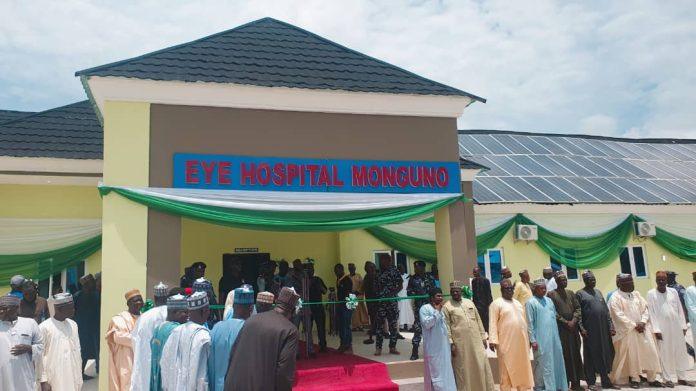Governor Babagana Zulum of Borno State, has launched a programme offering free eye treatment and surgeries to 5,000 patients while commissioning three major healthcare facilities in Monguno, Northern Borno.
The initiative, which includes cataract operations, was rolled out during the unveiling of a newly established Eye Hospital, a Dental Hospital, and a College of Nursing in the town.
Speaking at the commissioning, Governor Zulum described the projects as a milestone in expanding access to healthcare in underserved parts of the state.
He noted that until now, public dental and eye hospitals were concentrated in Maiduguri, the state capital, leaving residents in other zones with limited options.
Zulum explained that his administration had pledged to decentralise healthcare delivery, adding that similar facilities were earlier established in Biu to serve Southern Borno.
“We have established dental and eye hospitals in both the southern senatorial zone, specifically in Biu, and now here in the northern senatorial zone, in Monguno,” the Governor said.
Read Also: FIRS partners with NGO to distribute palliatives to flood victims in Borno
Highlighting the impact of the new Eye Hospital, Zulum recalled the case of a man who had been blind from cataracts for over a decade but regained his sight after surgery.
“This is the essence of our work to restore hope and dignity to our people,” he remarked.
The Governor also stressed the importance of building human capacity, pointing out that the College of Nursing will help train nurses and midwives who can serve across the state and beyond.
He pledged continued investment in facilities, staffing, and accommodation to support healthcare personnel.
Commissioner of Health, Mallum Gana, commended the projects, noting that cataracts account for nearly 70% of blindness cases in the state.
He expressed optimism that the new hospital would significantly reduce preventable blindness.
Community members in Monguno and nearby towns expressed joy over the projects, noting that the facilities would ease the burden on Maiduguri’s crowded hospitals while bringing vital medical services closer to people in the northern part of the state.



